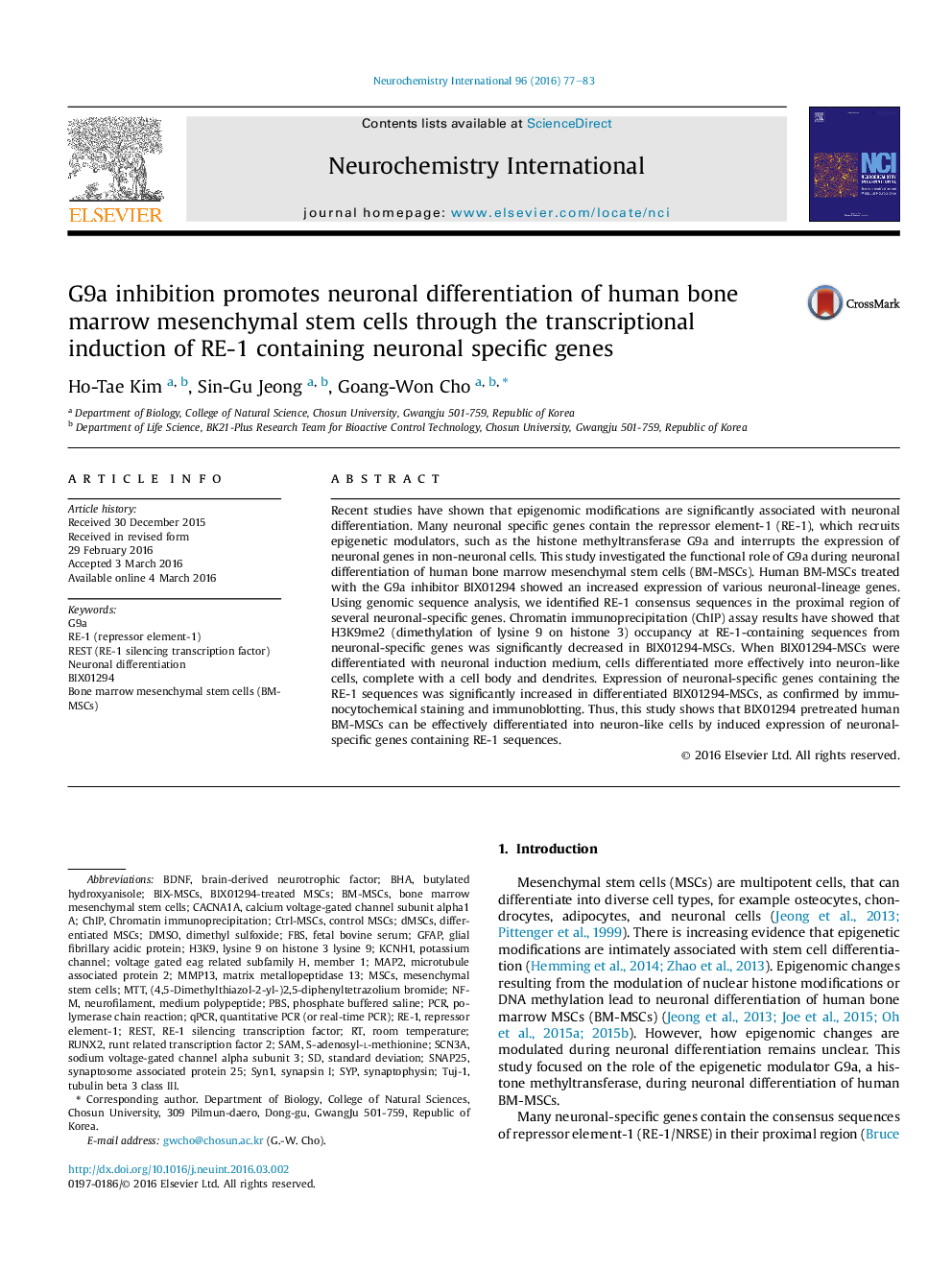| Article ID | Journal | Published Year | Pages | File Type |
|---|---|---|---|---|
| 2200320 | Neurochemistry International | 2016 | 7 Pages |
•Inhibition of G9a causes increased expression of neuronal marker genes.•BIX01294 treatment improves the rate of neuronal differentiation in hBM-MSCS.•BIX01294 promotes neuronal differentiation via expression of RE-1 containing genes.
Recent studies have shown that epigenomic modifications are significantly associated with neuronal differentiation. Many neuronal specific genes contain the repressor element-1 (RE-1), which recruits epigenetic modulators, such as the histone methyltransferase G9a and interrupts the expression of neuronal genes in non-neuronal cells. This study investigated the functional role of G9a during neuronal differentiation of human bone marrow mesenchymal stem cells (BM-MSCs). Human BM-MSCs treated with the G9a inhibitor BIX01294 showed an increased expression of various neuronal-lineage genes. Using genomic sequence analysis, we identified RE-1 consensus sequences in the proximal region of several neuronal-specific genes. Chromatin immunoprecipitation (ChIP) assay results have showed that H3K9me2 (dimethylation of lysine 9 on histone 3) occupancy at RE-1-containing sequences from neuronal-specific genes was significantly decreased in BIX01294-MSCs. When BIX01294-MSCs were differentiated with neuronal induction medium, cells differentiated more effectively into neuron-like cells, complete with a cell body and dendrites. Expression of neuronal-specific genes containing the RE-1 sequences was significantly increased in differentiated BIX01294-MSCs, as confirmed by immunocytochemical staining and immunoblotting. Thus, this study shows that BIX01294 pretreated human BM-MSCs can be effectively differentiated into neuron-like cells by induced expression of neuronal-specific genes containing RE-1 sequences.
